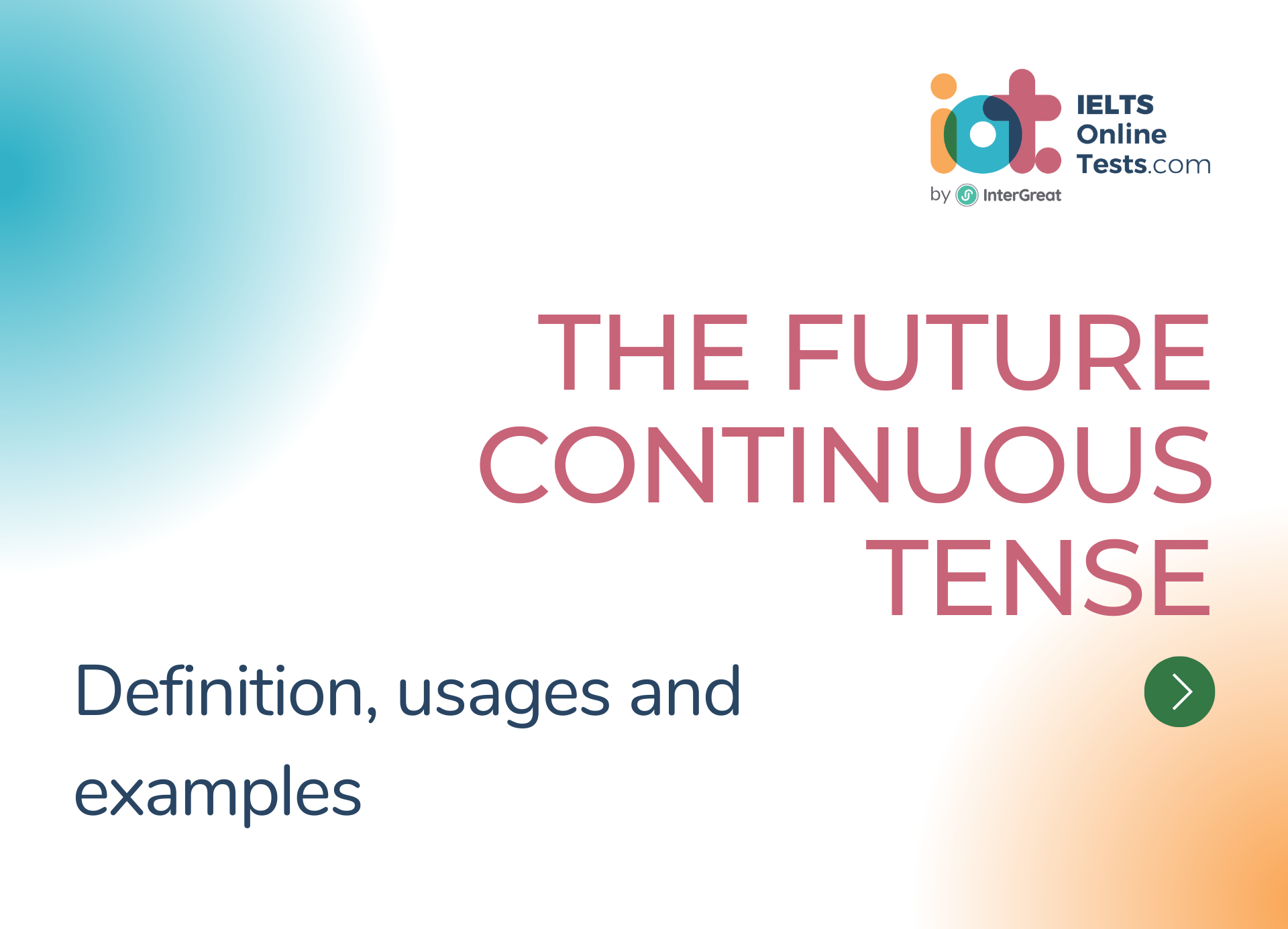
The future continuous tense
The future continuous tense, also known as the future progressive tense, is used to describe ongoing or continuous actions that will be happening at a specific time or during a specific period in the future. It emphasizes the duration or continuity of an action in the future.
Here's a detailed explanation of the future continuous tense:
Formation of the Future Continuous Tense:
- The future continuous tense is formed by using the future tense of the auxiliary verb "will" (or "shall" in some cases) followed by the present participle form (-ing form) of the main verb.
- Example: "They will be playing soccer."
Usage of the Future Continuous Tense:
- Describing ongoing actions in the future:
- Example: "I will be studying for the exam tomorrow."
- Referring to actions that will be in progress at a specific time or during a specific period:
- Example: "She will be working on the project all afternoon."
- Indicating assumptions or predictions based on current evidence:
- Example: "He will be traveling for business next month."
- Expressing polite inquiries or making polite requests about future plans:
- Example: "Will you be attending the meeting tomorrow?"
- Describing ongoing actions in the future:
Examples of the Future Continuous Tense:
- "I will be studying all night for the exam."
- "They will be traveling in Europe this summer."
- "She will be waiting at the airport for her parents."
- "We will be watching a movie at the theater tomorrow evening."
- "He will be working on the project until late tonight."
Time Expressions Used with the Future Continuous Tense:
- Time expressions such as "tomorrow," "next week," "at 6 PM," "for three hours," or specific future periods are commonly used with the future continuous tense to indicate when the action will be taking place.
- Example: "She will be working on the report from 9 AM to 12 PM."
Negative and Interrogative Forms:
- To form negative sentences, add "not" after the auxiliary verb "will."
- Example: "He will not be attending the party."
- For interrogative sentences, invert the subject and the auxiliary verb "will."
- Example: "Will you be coming to the event?"
- To form negative sentences, add "not" after the auxiliary verb "will."
The future continuous tense allows us to describe ongoing actions or events that will be happening at a specific time or during a specific period in the future. It helps us indicate the continuity of actions and their expected occurrence in the future. By using this tense correctly, we can effectively convey information about future activities or situations in English.




